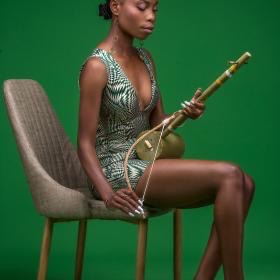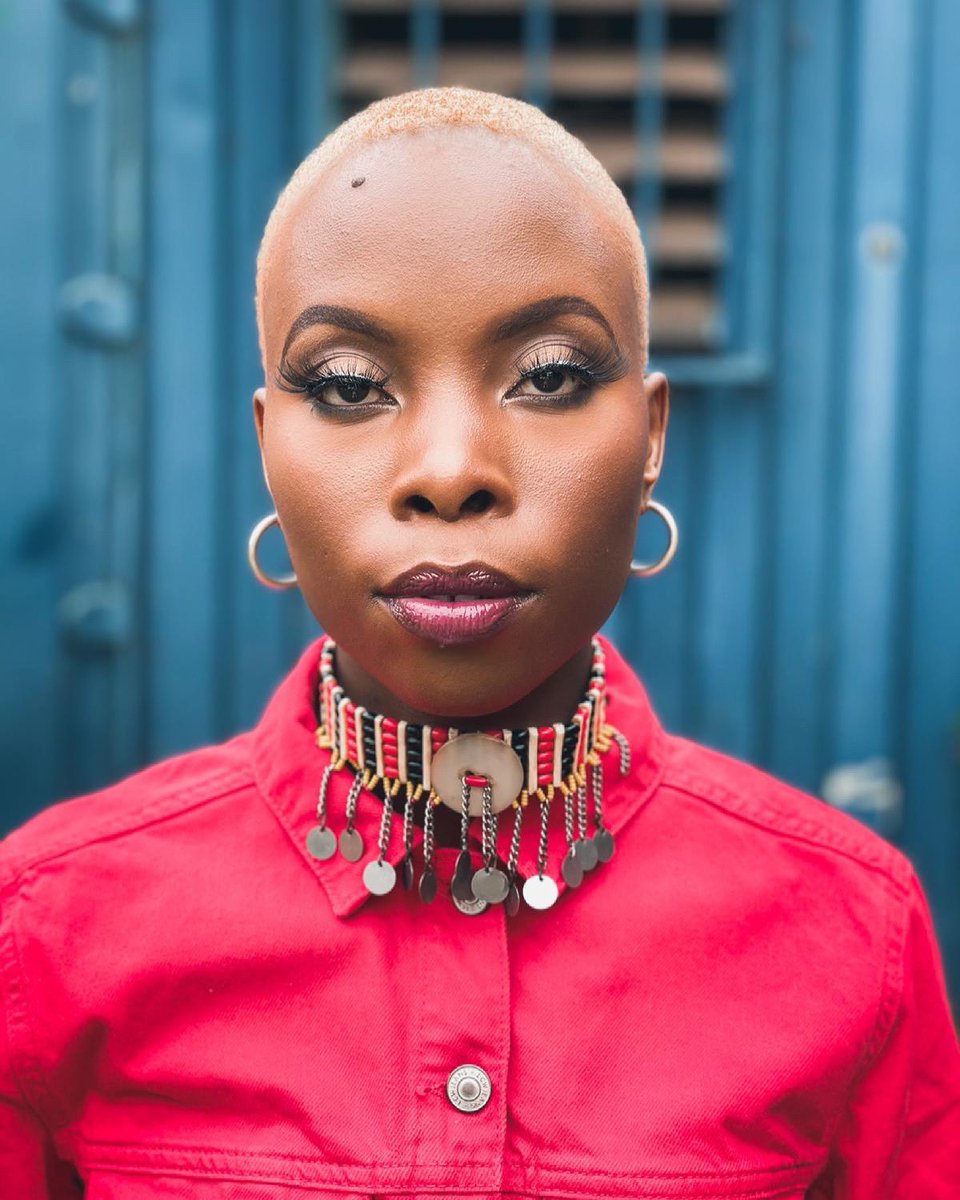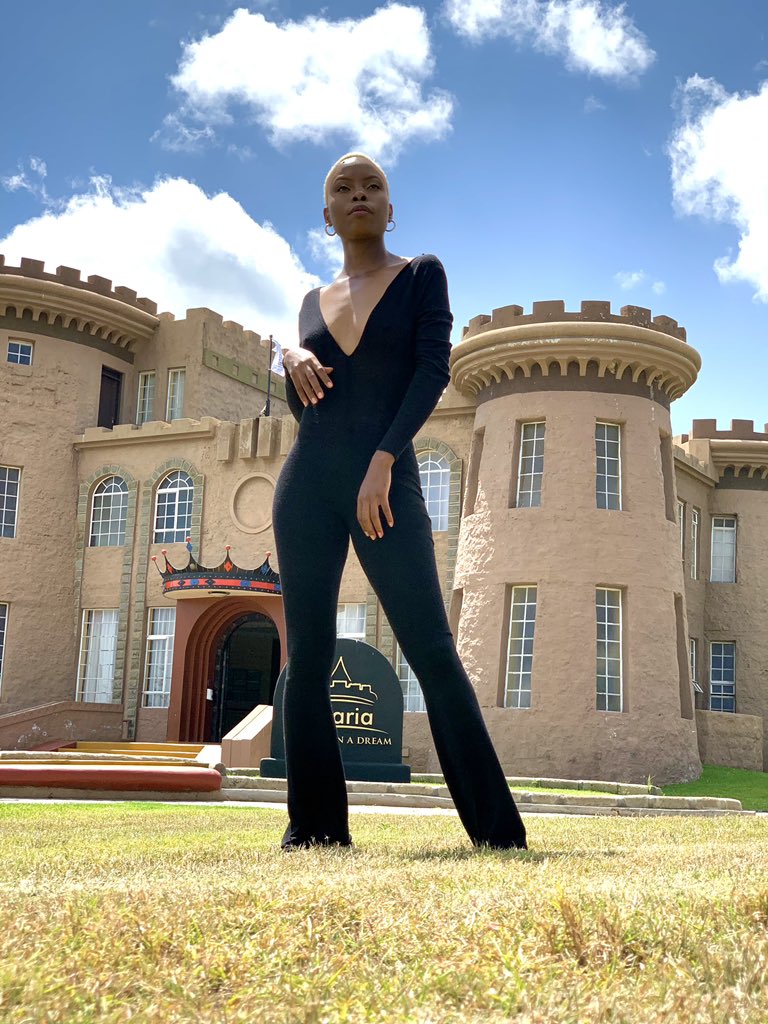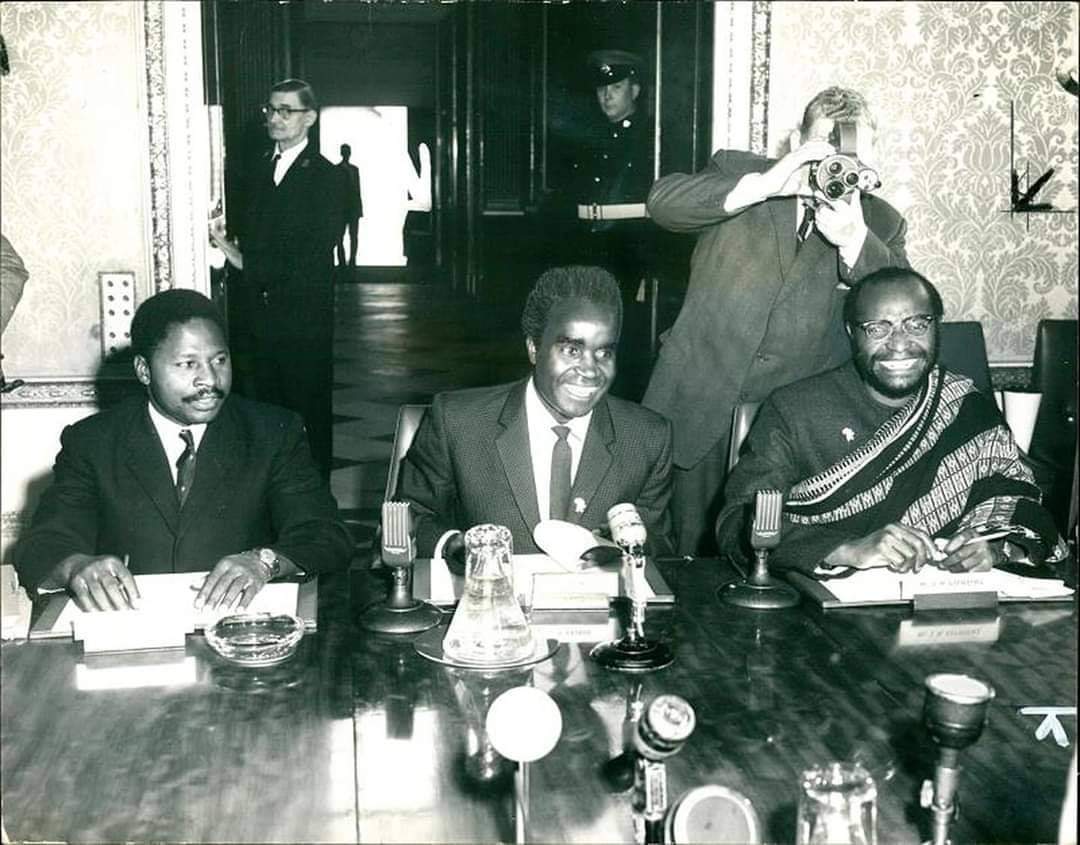
LABDI OMMES
Daughter of the Nile
Daughter of the Nile conjures up memories of an old Michael Douglas movie, the ‘Jewel of the Nile.’ Together with Kathleen Turner, Douglas goes into an adventure-filled excursion in an African desert in search of the fabled “Jewel of the Nile.”
Daughter of the Nile
Daughter of the Nile conjures up memories of an old Michael Douglas movie, the ‘Jewel of the Nile.’ Together with Kathleen Turner, Douglas goes into an adventure-filled excursion in an African desert in search of the fabled “Jewel of the Nile.”

Adventurous, nonconformist, passionate. What the Hollywood movie magic did to us as kids was simply magical.
Kenya’s Daughter of the Nile, Labdi Ommes’ persona evokes similar qualities. Adventurous, rebellious, yet innovative. She plays a once forbidden instrument for women performers, the Orutu, in a magical way.
Orutu is a musical instrument that seems to talk to one’s rhythm, following one’s speech pattern. A one-stringed instrument, the Orutu was strictly a preserve of men. The way Labdi plays is simply magical.
Labdi is quick to remind her compatriots that women’s performance and gender dynamics in traditional African music is evolving. Just like with the Orutu, female drummers were also forbidden to play at the Royal Palace in Burundi.
Physiological reasons relating to the strength of a woman were given but mostly, the reasons had to do with men feeling uncomfortable with women holding drums between their legs.
Before the era of Magical Kenya was the big screen magic. Unlike Hollywood movies, watching Bollywood movies as children without understanding a single word of what the actors were saying was simply universally, magical. There were no subtitles in those days.
Even the guys enjoying their Embassy cigarettes had swag and would make a grand entry showing off, ‘I only smoke Embassy,''
Chiding other movie-goers, one smoker would motion to the concessions stand attendant at Embassy Cinema to skip Sportsman, SM and other less expensive cigarettes as they waited for the continuous shows to start.
That’s right, the movie would play continuously, essentially in a loop. After the 2 O’clock session, there’d be a 4 O’clock, 6 O’clock and so on. That way, you could watch a movie multiple times to your heart’s desire at the price of one ticket -quite cheap!
Long before Harry Potter, Midnight Movies were a thing in Kenya. They actually had midnight shows back in the day. When church folk would go for kesha (all-night vigils), movie buffs would enjoy the thrill of being at the theater at midnight.
Photo: @Panzigo
Photo: @Panzigo

As sure as night would turn to day, you’d be guaranteed that someone in the audience would have watched all the day’s shows-in a loop. Say, you enter the 6 O’clock show, your neighbor might have been there since morning.
Before spoiler alerts came to be-these were your REAL movie spoiler alerts.” Utaona akimshoot hapo. Utaona. Eeh, Ngoja tu.(Gunshots). Si amemshoot aki. (More gunshots) Si Nilikuambia. Eeh, sikukuambia? Salalalala! Wueh!
The guy would be rocking off his chair, much to his own amusement, still laughing at his own jokes.
Then you have the sense to move to the empty seats up front, the front row seats. Our ‘resident’ movie critic follows in hot pursuit. You wish to tell him, “Si ukae tu huko,” but you can’t because he’s much older. He continues, “Alafu otero atashikwa na hao makarao.”
“Kilind Istu atashikwa tu saa hii, mara moja. Kimbia Kilind. Kimbia! Nilikuambia aje nani? Eeh, nilikuambia aje? Si nilikuambia? Ameshikwa ama hajashikwa?”
(Horses) Kukurukakara. Ndiyo. Kukurukakara. (Cupping hands like a megaphone) Sheriff anacome, Maayoo! Sheriff anacome. Anakaribia, anakaribia-moja, mbili tatu.( Clapping) Hapo sasa. Maridadi. Sheriff amefika. Sheriff malisa yeye. Malisa!
(The Sheriff of the county and Kilind exchange blows)...Our neighbour stands up, cheering.
“Wewe, kaa chini,” the guys in the back would say.
“Nini si nimelipa. Usiniletee. Alaa. Cenji...Ndiyo Kilind ni mnoma. Noma sana.”
“Nini si nimelipa. Usiniletee. Alaa. Cenji...Ndiyo Kilind ni mnoma. Noma sana.”
There was that one story that was told in school when the new student Ephraim came from upcountry and went to Sun City Cinema in Eastleigh. After the National Anthem, the seat folded and poor Ephraim thought he had broken the movie seat.
He sat on the edge of the seat, perched atop the seat all the way through the first session. It was only during the interlude that another kid showed him how to use the seat-properly.
From then on, kids from upcountry were given proper orientation on how to conduct oneself in the movies to avoid future embarrassment.
From the darkness of Nairobi’s movie theaters, we moved to the Social Halls where there’d be traditional dancers playing the Nyatiti, a stringed instrument played in Nyanza to gyrating dancers and the Isikuti drums from Western Kenya would fill the air.
Those cultural expressions in Nairobi were rich in those days.
The cultural shows would take place in the City Council’s Halls where the community would come together and play in those gatherings.
In those days, women participation in traditional dances stuck to their traditional roles. Today,
feminine participation in traditional African music is still a long way from being integrated or having a reasonable semblance of acceptance.
feminine participation in traditional African music is still a long way from being integrated or having a reasonable semblance of acceptance.
The Orutu, Labdi’s prized possession and tool of trade is a no-go zone for women, they are not allowed to play. This is where the rebel in Labdi comes in. Labdi calls the Orutu her ‘child.’ 

The Daughter of the Nile seeks to impart her knowledge to a younger group of musicians. She wishes to teach young Kenyan girls and boys how to play the Orutu. For now, by virtue of simply playing the instrument, Labdi is helping popularize the traditional instruments of Kenya.
Labdi first came to play the Orutu when she was pursuing a degree in Fine Art and Interior Design at Kenyatta University (KU) in 2013.
Daughter of the Nile came to learn that playing the Orutu is taboo in the Luo culture,so she took it upon herself the responsibility of learning how to play.
A lecturer at KU showed Labdi how to handle the Orutu and she took it up from there.
Practice, practice and more practice. That’s how Labdi came to perfect her art. Enough hours of teaching herself how to play brought her to the realization that the single-stringed instrument was what she had been looking for.
Labdi had been looking for an instrument that would compliment her voice and she found one; in the Orutu.
Photo: @danmedhurst
Photo: @danmedhurst

Many young people would want to play the violin, cello, guitar but not the African traditional instruments. Labdi sought to change that.
Taboo
There’s a family story relating to this very topic of women and playing instruments. Labdi probably got the musical and innovative gifts from her great grandmother.
There’s a family story relating to this very topic of women and playing instruments. Labdi probably got the musical and innovative gifts from her great grandmother.
Many years ago,it is said that Labdi’s great grandmother made a bold statement to the community regarding not being allowed to play. So, what did she do? She made her own marimba-like instrument because she was not allowed to play one.
So, Labdi’s great grandmother made her own instrument and sang within the confines of her own compound. According to her grandfather, her grandmother would play out of sight of the villagers.
Labdi’s grandfather would just hear the sound of music and song, but actually never saw his mother play. One may imagine the joy great grandma had just jammin’ to her own tunes, without society’s eyes cast on her.
One wonders just how many women missed such beautiful moments. Oh, the Happy feet dancing!
Overseas
Labdi’s music has taken her beyond Kenya’s shores. She fondly remembers performing at a concert in Norway to a rapturous reception. In a town that receives rainfall 266 days in a year, one would have expected a somewhat cool reception.
Labdi’s music has taken her beyond Kenya’s shores. She fondly remembers performing at a concert in Norway to a rapturous reception. In a town that receives rainfall 266 days in a year, one would have expected a somewhat cool reception.
But, no-the Bergen City audience loved her performance!
The Daughter of the Nile keeps going from strength to strength. Her collaboration with Norwegian electronic artiste Bernt Isak Waerstad brought about the popular Unganisha duo. 

Bernt moves very well to the Luo tune in Unganisha’s latest video, adding to the elegance and grace of Nang’o.
Equal Pay
It’s not only the US Women's National Soccer team that’s been agitating for equal pay amongst players. FIFA, with all its global resources will probably just let the equality-in-pay storm quiet down on its own and let the boys play. The FIFA ref will wave, play on.
It’s not only the US Women's National Soccer team that’s been agitating for equal pay amongst players. FIFA, with all its global resources will probably just let the equality-in-pay storm quiet down on its own and let the boys play. The FIFA ref will wave, play on.
In music, the story is the same. Women are not paid as much as men are. The lack of equality in pay is a big concern for the Daughter of the Nile.
Labdi advocates for equal pay in the music industry because the sad reality is that women are not paid the same as their male counterparts.
Photo: @MichelleDonde
Photo: @MichelleDonde

Soundcloud
Her sound is ethereal. A fusion of African traditional sound with an eclectic mix with a futuristic touch is what you’ll hear. Labdi’s voice is angelic. Her playing of the Orutu is remarkable. If you haven’t done so already, please check her out on Soundcloud.
Her sound is ethereal. A fusion of African traditional sound with an eclectic mix with a futuristic touch is what you’ll hear. Labdi’s voice is angelic. Her playing of the Orutu is remarkable. If you haven’t done so already, please check her out on Soundcloud.
Collaborations
In an era where virtually every musician that you know is doing a collabo, Labdi has not been left behind. Names like Simply Addy and Deejay Suraj will come up in those discussions.
In an era where virtually every musician that you know is doing a collabo, Labdi has not been left behind. Names like Simply Addy and Deejay Suraj will come up in those discussions.
Dispirited
Sometimes, Labdi’s vision does not conform to that of the other artist. They might be in different seasons creatively and that might pose some major challenges when it comes to collabos. Her journey to creating an innovative space in music continues, nevertheless.
Sometimes, Labdi’s vision does not conform to that of the other artist. They might be in different seasons creatively and that might pose some major challenges when it comes to collabos. Her journey to creating an innovative space in music continues, nevertheless.
Respect
Labdi pays homage to Ayub Ogada, Salif Keita, Kenge Kenge and Rokia Traore among others for their role in keeping traditional African music relevant. These pioneers of African music have contributed heavily to Labdi’s sound.
Labdi pays homage to Ayub Ogada, Salif Keita, Kenge Kenge and Rokia Traore among others for their role in keeping traditional African music relevant. These pioneers of African music have contributed heavily to Labdi’s sound.
Winjauru
One may mistake this number for a romantic song but it is more of an ode for us to listen.
It urges Kenyans to listen to ourselves and reflect on our history. Listen to me so that you can listen to yourself is the profound message of Winjauru.
One may mistake this number for a romantic song but it is more of an ode for us to listen.
It urges Kenyans to listen to ourselves and reflect on our history. Listen to me so that you can listen to yourself is the profound message of Winjauru.
The song was conceptualized around 2007 during the mayhem of Kenya’s Post Election Violence (PEV).
Nang’o
The right frame of mind for this song is when you’re cruising in those Rongai matatus that seem to fly to the skies. The song will lift your spirits in a futuristic way as the Ma3 makes gravity-defying moves on the way to the city.
The right frame of mind for this song is when you’re cruising in those Rongai matatus that seem to fly to the skies. The song will lift your spirits in a futuristic way as the Ma3 makes gravity-defying moves on the way to the city.

The fusion of the traditional with the modern creates a very unique sound.
Who will not be tempted to move when the Nyatiti plays?
Do not be surprised if the song becomes part of the soundtrack of a major movie soon.
Do not be surprised if the song becomes part of the soundtrack of a major movie soon.
Jewel
Labdi Ommes is a jewel indeed. That fabled ‘Jewel of the Nile’ that Michael Douglas sought with so much drama & adventure is right here with us. Kenya’s ‘Jewel of the Nile’ is Kenya’s Daughter of the Nile and we can only foresee a very bright future ahead for her & team.
Labdi Ommes is a jewel indeed. That fabled ‘Jewel of the Nile’ that Michael Douglas sought with so much drama & adventure is right here with us. Kenya’s ‘Jewel of the Nile’ is Kenya’s Daughter of the Nile and we can only foresee a very bright future ahead for her & team.
There’s no musical or artistic desert in Kenya to invalidate her dreams. Given the creativity, the ‘Jewel of the Savannah’ has already left an indelible mark in the tapestry of Kenyan art as a singer, songwriter, performer and creative extraordinaire. 

• • •
Missing some Tweet in this thread? You can try to
force a refresh










